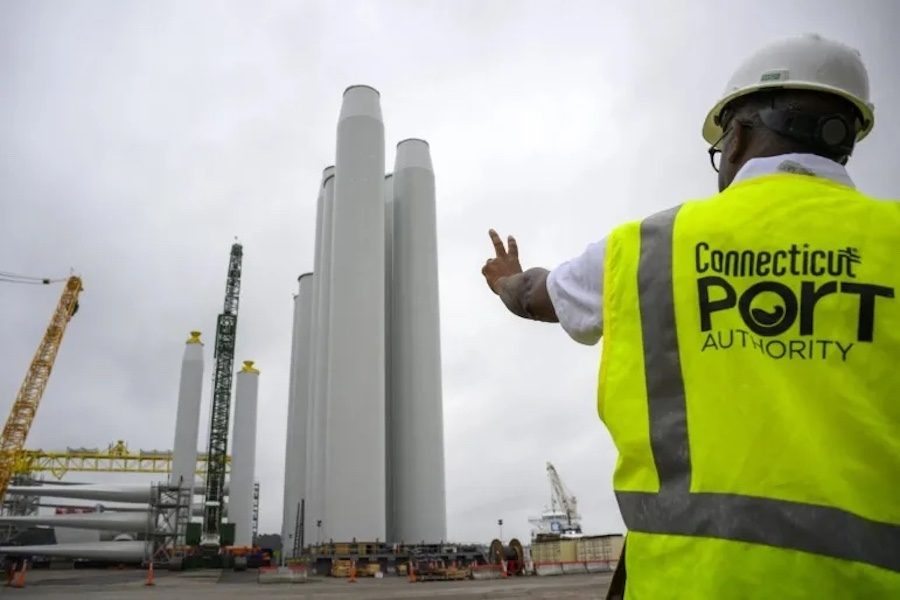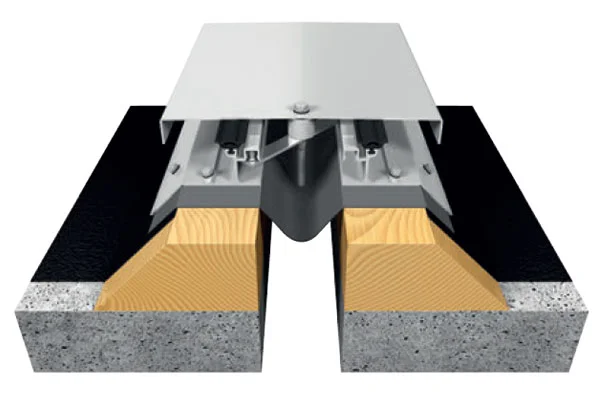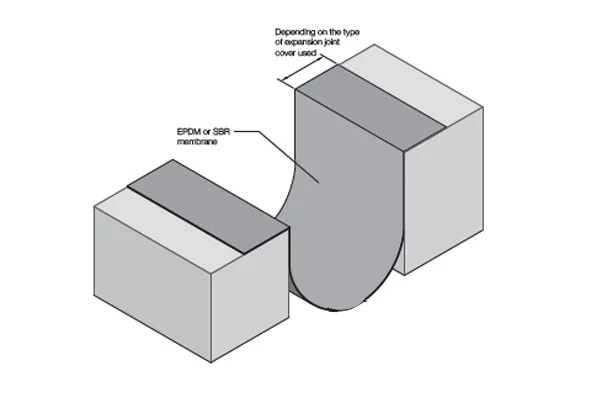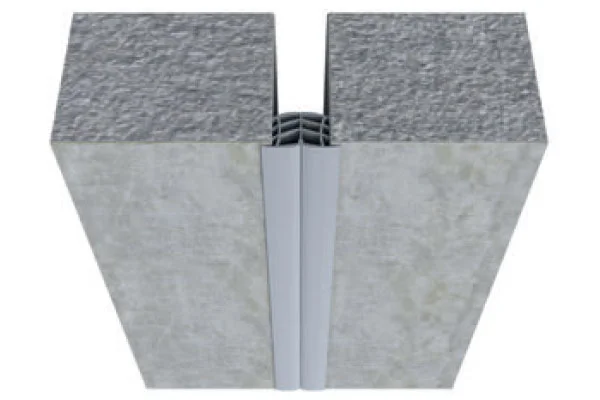
Governors of Rhode Island and Connecticut said they would fight a Trump administration order—including a potential lawsuit—to halt construction on the shared 704-MW Revolution Wind energy project 15 miles off their coasts that is about 80% complete and could operate late next year.
On Aug. 22, the federal Bureau of Ocean Energy Management—the U.S. Interior Dept. agency that regulates offshore wind in federal waters—notified Orsted to “halt all ongoing activities.” It claimed the need to “address concerns related to the protection of national security interests in the United States.” These are not detailed but work is halted until a project “review” is completed, with no time frame noted.
_______________________________________________________________
UPDATE: In an Aug. 25 federal court filing in Maryland and one in Delaware on Aug. 22, the administration said it intends to revoke by Sept. 12 key federal construction and other approvals by the Biden government in late 2024 for a proposed 2.2-GW, 114-turbine offshore wind project in the two states being developed by U.S. Wind. The federal action, first reported by region TV station WBOC, was filed in tandem with an existing lawsuit brought last year by officials in Ocean City, Md., against the Interior Dept. for approving the project, which the coastal city opposes.
“We remain confident that the federal permits we secured after a multi-year and rigorous public review process are legally sound,” said Nancy Sopko, vice president of external affairs for US Wind, in a media statement.
“Canceling a project set to bring in $1 billion in investment, create thousands of good-paying jobs in manufacturing, and generate more Maryland-made electrical supply is utterly shortsighted,” said Gov. Wes Moore (D) in an Aug. 25 statement.
The U.S Environmental Protection Agency also on Aug. 25 joined Ocean City in its petition to Maryland officials to create an appeals process at the federal level to contest the project’s state-granted air emissions permit. State environmental regulators and U.S. Wind oppose that action as unnecessary.
_______________________________________________________________
The estimated $6.2-billion Revolution Wind, the first shared-output offshore wind energy project in the U.S., is set to provide power to more than 350,000 homes in the two states, with Rhode Island signing a 20-year power purchase agreement for 400 MW and Connecticut agreeing to buy 304 MW. All foundations for the project’s 65 Siemens Gamesa-built turbines, each 11 MW, are installed, with 45 turbines constructed. Revolution Wind is a 50-50 partnership of Denmark-based Orsted and
the Skyborn Renewables unit of private infrastructure investment giant
Global Infrastructure Partners.
On Aug. 22, the federal Bureau of Ocean Energy Management—the U.S. Interior Dept. agency that regulates offshore wind in federal waters—notified Orsted to “halt all ongoing activities.” It claimed the need to “address concerns related to the protection of national security interests in the United States.” These are not detailed, with the U.S. Defense Dept already approving the project, but work is halted until a new “review” is completed, No time frame for that was disclosed.
Interior spokespersons did not initially return media queries for added information, but one, Aubrie Spady, claimed in statements to The New York Times and The Hill that “Americans deserve energy that is affordable, reliable and built to last — not experimental and expensive wind projects that are proven failures.”
Orsted said in a statement that it was “considering a range of scenarios, including legal proceedings,” but “is complying with the order and is taking appropriate steps to stop offshore activities, ensuring the safety of workers and the environment.”
The company also developed the 123-MW South Fork offshore wind project off New York state, which was built in 2023 and is the first such energy project to operate at commercial scale in the U.S. It has operated at 53% of its capacity through the first half of 2025, “on par with the state’s baseload power sources,” Orsted said. The firm is still building a third project, the 924-MW Sunrise Wind, also to sell power to New York when completed in about 2027. Orsted said its U.S. offshore wind projects have totaled about 4 million union labor hours to date, with 2 million for Revolution Wind.
‘Delay and Disruption’
Officials responded swiftly. “At a time when we should be moving forward with solutions for energy, jobs and affordability, the Trump Administration is choosing delay and disruption,” said Rhode Island Gov. Dan McKee (D) on social media. “I will pursue every avenue to reverse the decision to halt work on Revolution Wind,” he added, emphasizing that the project was fully permitted.
Connecticut Gov. Ned Lamont (D) added: “This political move by the Trump administration will drive up the cost
of electricity bills and contradicts everything [officials have]
told us.” Sen. Richard Blumenthal (D-Conn.) stated that he expects legal decisions in the states’ favor, finding the order unlawful, since it was based on “secret information,” he said.
New England grid operator ISO New England said Revolution Wind is factored into its power supply projections, so not building it will “undermine the power grid’s reliability and the region’s economy now and in the future.” State officials also cited risk of rolling blackouts.
Others also faulted the administration action. “President Donald Trump just fired 1,000 of our members who had already labored to complete 80% of this major energy project,” said North America’s Building Trades Unions President Sean McGarvey in a statement. Trump “keeps talking a big game about energy dominance, but actions like this prove it’s another empty promise. Energy dominance doesn’t mean taking away jobs.“
Revolution Wind “sparked investments in Louisiana and New England shipyards, purchased export cables from a South Carolina factory and spurred a steel supply chain that crossed New York and created hundreds of union jobs in Providence, Rhode Island,” said Liz Burdick, CEO of industry advocacy group Oceantic Network.
In a social media post, offshore wind sector analyst Philip Totaro, CEO of IntelStor, noted the array of global suppliers and contractors working on Revolution Wind, including Australia-based Worley and European firms that have set up U.S.-based operations. “I am curious as to which of the supply chain companies involved with the project supposedly represent a national security risk to the U.S,” he said. “Is it companies based in the U.S.? The U.K.? E.U.-member countries like Denmark, Spain, France or the Netherlands? The industry must demand accountability!”
But the order adds new financial strains for Orsted, which is 50% owned by the Danish government, with company shares down 17% on Aug. 25, financial media reported. U.S. market challenges in recent years and particularly this year from Donald Trump orders—also affecting other sector developers—have included rising costs and interest rates, supply chain disruptions and squeezed tax credit changes that have delayed and cancelled projects. Just announced is a U.S. Commerce Dept. investigation of turbine and other component imports that could generate more
tariffs, analysts speculate.
On an Aug. 11 earnings call, Orsted executives noted corporate funding needs caused by “unexpected developments outside our control” in the U.S. market, created in recent months by the consecutive anti-wind sector administration policies. The company is meeting with investors on Aug. 26 related to its need for about $9.4 billion in new investment to proceed with the Revolution Wind and Sunrise Wind projects.
In April, the administration ordered developer Equinor to halt work on the $5-billion Empire Wind project off New York, but quickly reversed it after intervention by state and other officials, and a meeting between Gov. Kathy Hochul (D) and Trump. There is speculation the reversal occurred after she informally agreed to consider resumed construction of two natural gas pipelines in the state, although Hochul has denied it.
Related to Revolution Wind, analysts also speculate the Trump order is linked to Denmark’s foreign minister signing hours before a climate cooperation deal with California Gov. Gavin Newsom, according to Bloomberg.
“It remains to be seen what price [Trump] might seek to extract from Connecticut and Rhode Island, Orsted or even Denmark for lifting the [Revolution Wind] stop work order,” said wind sector publication Recharge.








